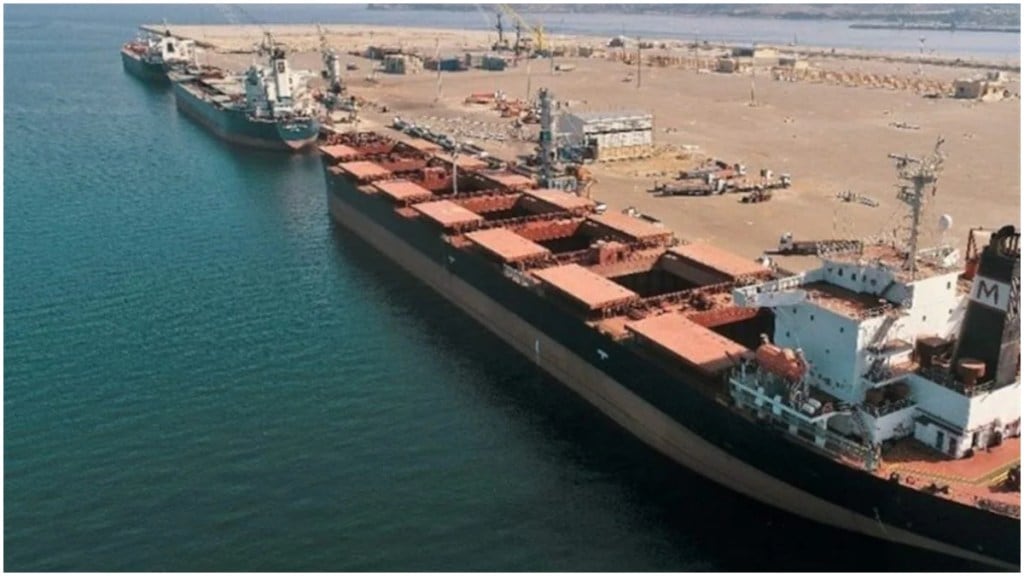With US sanctions on India’s Chabahar port project in Iran taking effect late September, the South Asian nation’s officials are working their way around a potential deal that would extend the waiver, according to a new Economic Times report. Sources familiar with the matter have since told the news outlet that New Delhi is in the middle of active discussions that would consolidate the continuity of the US sanctions waiver. They further insisted that the issue was currently being reviewed by Washington.
Randhir Jaiswal, India’s Ministry of External Affairs spokesperson, initially told reporters, “We are presently examining the implications that this [waiver] revocation has for India.”
India-funded Chabahar port in Iran: Sanctions, waiver and complicated deals
The port in question serves its role as a crucial link between India and countries/regions like Afghanistan, Eastern Russia and Central Asia. Earlier this month, reports also suggested that the government directors on the board of India Ports Global Ltd (IPGL) had resigned en masse shortly ahead of the sanctions coming into effect on September 29.
“Because of the sanctions, IPGL or anybody attached to IPGL would also have come under sanctions. Hence, IPGL directors had no option but to resign because individuals will also be sanctioned causing huge embarrassment,” an anonymous source brief on the matter shared with ET Infra at the time. “So, all the government nominees on the board of IPGL resigned. To avoid direct confrontation with the United States, all the references have been removed and the website of IPGL has also been taken down.”
The US Office of Foreign Assets Control (OFAC) eventually issued a letter valid till October 28 to India. It emphasised concerns about how IPGL intended to implement “wind down of all activities at the Port of Chabahar, including at the Shahid Beheshti terminal or any other related facilities.”
The complications surrounding the India-funded port in Iran especially emerge over IPGL inking a 10-year agreement with Iranian government’s Ports and Maritime Organisation (PMO). The contract foreground details about the operation of Shahid Beheshti terminal at the port and India’s investment in equipment for the same. Contrary to the US sanctions taking shape, the so-highlighted contract does not “recognise” sanctions as a “force majeure” event could push both countries to exit the deal.
And so, the source said that ending the agreement would trigger a penalty clause even though “invoking force majeure on account of sanctions” is already not possible under the contract.
Trump admin reverses fate on rare exception for India
Another source deemed revoking the waiver as a means to put pressure on India, especially since it was the first Trump administration (2018) that granted Indian companies an exception to continue their development plans at Chabahar even though sanctions had already hit Iran. “Till the US was in Afghanistan, they had a big interest in Chabahar,” the insider added. “Now that they have left Afghanistan, they have no interest at all in Chabahar.”
The waiver revocation went into effect a day after the United Nations imposed sanctions on Iran again over Tehran’s nuclear program. On September 16, the US State Department said that the decision aligned with “President Trump’s maximum pressure policy to isolate the Iranian regime.” Furthermore, it added that the rare exception in 2018 was focussed on aiding Afghanistan’s reconstruction and economic development at the time, but the situation has since change in light of Taliban’s control over the country since 2021.
On the flip side, India-based expert on geostrategy Brahma Chellaney noted in an X post how “Trump’s ‘maximum pressure’ “has consistently meant maximum payoff for Beijing, with India left to pay the price.” He backed his remarks by describing the India’s Chabahar port as a “strategic counter to Pakistan’s Gwadar port, a Chinese Belt and Road project.”


